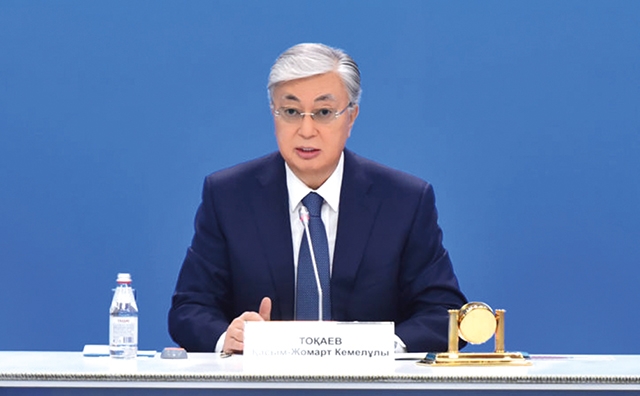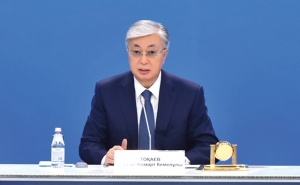Kazakh President Announces Major Political Reforms
Kazakh President Kassym-Jomart Tokayev announced a package of significant political reforms, during the second meeting of the National Council of Public Trust, held on December 20 in the Kazakh capital, Astana.
The 44-member council was established July 17 to tackle some of the country’s most acute issues.
“We are overcoming the fear of the alternative opinion. The government does not believe that disagreement is a destructive or socially dangerous phenomenon,” Tokayev told the council during the meeting.
The state demonstrated its political will to achieve concrete results in what Tokayev described as an “extremely sensitive area.”
“There should be no doubt as to the need for political modernization, which I said in my state-of-the-nation address,” the President said. “At the same time, the reforms should contribute to the stable development of our country, not undermine it. We need to strengthen the creative foundation of the political process so that pluralism becomes an important element in enhancing economic well-being and human capital.”
Once the law is passed, peaceful rallies will require notification to the relevant authorities only, rather than going through a permission process.
“It is time for both society and the state to adequately relate to the public expression of position. We need to understand that rallies are not only a right, but a responsibility,” said Tokayev.
The threshold to form a political party will be reduced from 40,000 to 20,000 people in an effort to reduce barriers to equal political participation and expand opportunities for civic engagement. Tokayev said the law on parties and elections should also be gradually changed.
Kazakhstan also needs to build a tradition of parliamentary opposition, the President noted.
“We need to understand the main condition for a new social paradigm – the presence of alternative views and opinions. We understand that alternative opinions and public debate do not lead to stagnation, but, on the contrary, are some of the main requirements for development,” Tokayev said.
He instructed the Kazakh Ministry of Foreign Affairs to start procedures to join the Second Optional Protocol to the International Covenant on Civil and Political Rights, aimed at abolishing the death penalty. Kazakhstan has maintained a moratorium on capital punishment since December 2003.
Article 174 of the Kazakh Penal Code, which penalizes incitement of social, national, tribal, racial, class or religious hatred, will be humanized and will have more clearly defined terms to reduce ambiguity and vagueness.
Tokayev said the government is aware of the demand for further political changes.
“Democracy should serve development and creativity, and not estrangement and collapse. There should be no place for populism,” he said.
The Kazakh President supported the idea of including civil society representatives on the boards of directors of socially significant enterprises in the quasi-public sector.
The government will complete the selection procedures and propose candidacies for those roles by March 1, 2020.
The government has proposed cutting more than 100 types of activities of state companies and more work needs to be done, Tokayev added, particularly in big cities, where the competitive environment is well developed.
The country’s foreign workers’ quota will also be reduced by 40% next year from 49,000 to 29,000.
The government will continue work to prevent discrimination against local workers by foreign employers.
All companies with more than 250 employees and where more than 30 of them are foreign citizens will be subject to regular inspections.
“Now the Ministry of Labor will be able to quickly respond to any violations, including disproportionate wages, social conditions and so on, not allowing problems to accumulate from year to year,” said Tokayev.
By Assel Satubaldina












